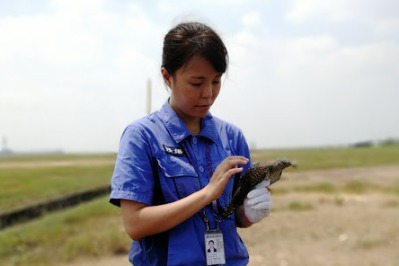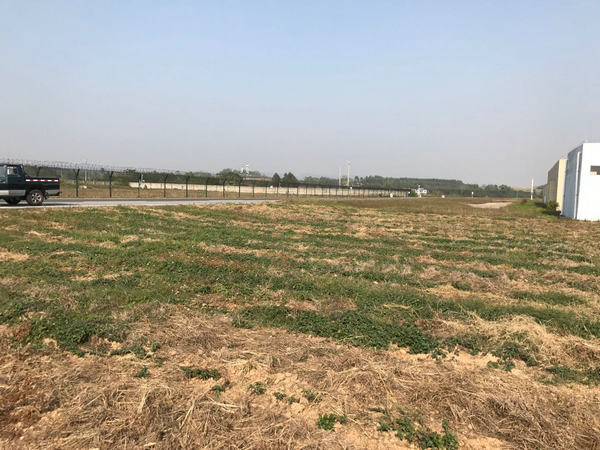
From the People's Daily app.
And this is Story in the Story.
According to a year-end study from 2016, China aviation authorities reported almost 4,000 bird strike incidents. It was estimated that the economic losses incurred as a result of birds hitting aircraft was roughly $18 million US dollars.
The strikes often happen in the spring, summer and autumn. The peak months are September and October, which coincide with bird breeding and migrations in China.
Northeastern China's Tianjin Airport is situated along a major bird migration route stretching from East Asia to Australia. Every year, millions of birds fly over the municipality, threatening all inbound and outbound aircraft.
Airport safety officials rely on nest eradication, non-toxic sprays, and sonar guns to keep the winged creatures away from the country's airports.
At Shanghai's Pudong Airport, officials with the hub's bird control unit said the strikes are the result of summer typhoons, which destroy nests and cause the birds to move closer to the airport.
Today's Story in the Story looks at how airplane safety is routinely threatened by birds and the measures China has implemented to ensure safe travel at its airports

Zoologist Li Dong prepares to release a bird back into the wild near Nanning's airport. (Photo: China Daily)
Li Dong grows plants to ensure the safety of aircraft.
The 33-year-old hopes that planting Wedelia trilobata, a low-growing species with yellow flowers and a unique smell, will keep birds away from the Nanning Wuxu International Airport as food and nest space remains scarce throughout the area.
"It's like tackling a problem at its source. If we can change the bird habitat, then they won't fly near the airport, and collisions won't happen," said Li, who works at the airport in Nanning, the capital city of the Guangxi Zhuang autonomous region.
"The flowers will reduce workload and save money, and they’re environmentally friendly," she said.
Originally from the Americas, the plant is often cultivated as an ornamental ground cover. It grows quickly and isn't labor intensive.
In the coming spring, she plans to grow the plant on a 6.67-hectare plot near the airport for her final research effort.
"As long as the land area is large enough, it will be easier to see its effects, and I will see solid academic results with a larger sample," she said.
Li studied wildlife protection at Guangxi University.
She began working at the Nanning airport in 2011 and was responsible for the hub's bird strike prevention efforts.
It was the first time that an airport under the management of the Civil Aviation Administration of China had recruited a zoologist to address the threat of bird strikes.

(Photo: China Daily)
"While I was supposed to protect wildlife, my job was to keep the birds away," Li explained.
The plant is ideal for the poor soil that surrounds the airport. "What matters most is whether the vegetation can survive in competition with weeds," she explained.
In 2016, her efforts received industry-wide attention.
A professor from the China Academy of Civil Aviation Science and Technology showed interest in her program and offered her research funding after visiting the site.
In 2017, she won the National May 1st Labor Medal given within the civil aviation industry. The honor was awarded by the All-China Federation of Trade Unions.
"Many people do not take bird strike prevention seriously and think we set off firecrackers to scare birds away," she said.
"It's supposed to be a 9-to-5 job. But I follow the birds' daily schedule. So, I wake up at dawn, take a nap at noon and then observe birds until dusk."
She observed the birds flying into the area and figured out their numbers, the heights at which they flew, their behaviors and whether or not they were a nocturnal species.
She visited the surrounding areas to learn why the birds were attracted to the airport.
"Many people may think it's tiring to observe birds all day long. But I like to be in nature. I also enjoy analyzing data as it allows me to be alone and get to the crux of the problem."
She's now able to estimate when a specific winged species will appear, so her colleagues can make early preparations to scare the birds away.
(Produced by Nancy Yan Xu, Lance Crayon, Brian Lowe, and Chelle Wenqian Zeng. Music by: bensound.com. Text from China Daily.)


